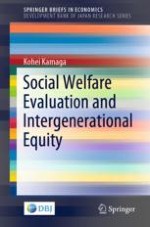2020 | Buch
Über dieses Buch
This book presents a synthesis of recent developments in axiomatic analyses of social welfare evaluation in social choice theory. It covers three different contexts of social welfare evaluation, namely, social welfare evaluation within a generation, intergenerational social welfare evaluation involving infinitely many generations, and intergenerational social welfare evaluation with variable population sizes of generations. Analyzing these three different but related contexts of social welfare evaluation in a unified manner, the book places the emphasis on the close linkage between them and provides readers with new insight regarding the relationship between them. Evaluation criteria discussed in the book are firmly rooted in moral philosophy. Besides the axiomatic analyses of utilitarian and egalitarian evaluation criteria, newly developed results on compromised criteria between the utilitarian and egalitarian evaluation criteria are covered as well. The book is recommended to readers who seek an up-to-date integrated overview of a large and broad body of the literature on the axiomatic analysis of social welfare evaluation.
Anzeige
